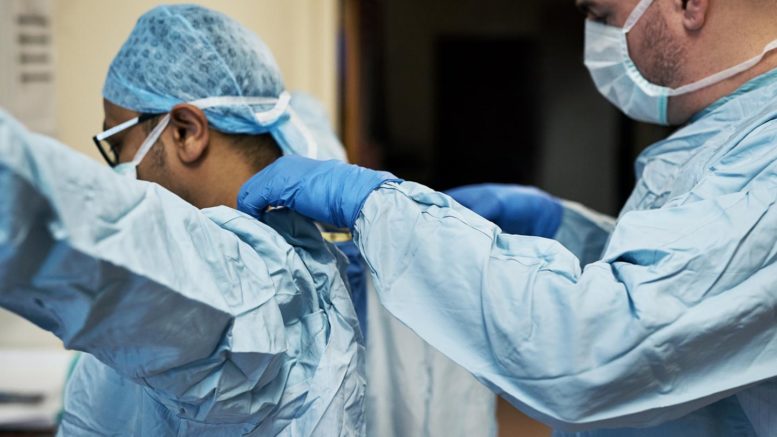Córdoba-Lanús, et al. (2021) observe that, "SARS-CoV-2 stability and infection persistence has been studied on different surfaces, but scarce data exist related to personal protective equipment (PPE), using realistic viral loads for infection. Due to the importance for adequate PPE management to avoid risk of virus infection, RNA stability was evaluated on PPE."
Persistence of SARS-CoV-2 infection and detection of genomic RNA in PPE (gowns and face masks) were determined by in-vitro assays and RT-qPCR, respectively. Samples were infected with a clinical sample positive for SARS-CoV-2 (Clin-Inf), and with a heat-inactivated SARS-CoV-2 strain sample (Str-Inf) as a control.
PPE samples infected with Clin-Inf were positive for the three viral genes on gowns up to five days post-infection, whereas these overall genes were detected up to 30 days in the case of face masks. However, gowns and FFP2 masks samples contaminated with Clin-Inf showed a cytopathic effect over VERO cells up to five to seven days post-infection.
The researchers summarize that SARS-CoV-2 RNA was detected on different PPE materials for five to 30 days, but PPE contaminated with the virus was infectious up to five to seven days. They say these findings demonstrate the need to improve PPE management and to formulate strategies to introduce viricidal compounds in PPE fabrics.
Reference: Córdoba-Lanús E, et al. Persistence of SARS-CoV-2 infection on personal protective equipment (PPE). BMC Infectious Diseases. Vol. 21, article number 1169 (2021).
